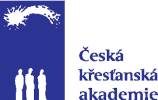Platonic Curriculum and the Allegory of the Cave
Keywords:
Idea, Plato, education, philosophy of education, theory, EuropeAbstract
The following paper attempts to show and take into account in basic terms the unity and direction of the movement of education as presented in Plato’s Republic. We show that education, according to Plato, essentially involves a claim to knowledge in the sense of understanding what is valid regardless of space and time and acting on the basis of norming oneself by this understanding. Then, namely, in the sense of this distinction, an educated person is one who is able to distinguish the important and the unimportant in his knowledge and in his life.
Downloads
References
Aristotle. 1934. Aristotle in 23 Volumes, Vol. 19. Translated by H. Rackham. Cambridge: MA, Harvard University Press.
Fleischer, Margot. 1970. "Die zweifache Periagoge in Platons Höhlengleichnis." Zeitschrift für philosophische Forschung 24 (4): 489–498.
Heidegger, Martin. 1957. Einführung in die Metaphysik. Tübingen: Max Niemeyer Verlag.
Heidegger, Martin. 1988. Gesamtausgabe 34. Vom Wesen der Wahrheit. Zu Platons Höhlengleichnis und Theätet. Frankfurt am Main: Vittorio Klostermann.
Liessmann, Konrad Paul. 2017. Bildung als Provokation. Vienna: Paul Zsolnay Verlag.
Losin, Peter. 1966. "Education and Plato’s Parable of the Cave." Journal of Education 178 (3): 49–65.
Plato. 1969. Plato in Twelve Volumes, Vols. 5 & 6. Translated by Paul Shorey. Cambridge: MA, Harvard University Press.
Svobodová, Zuzana. 2013. "Čas: Lidská otázka po původu a smyslu." Paideia 10 (1): 1–14. https://ojs.cuni.cz/paideia/article/view/1752.
Downloads
Published
How to Cite
License
Copyright (c) 2022 David Rybák

This work is licensed under a Creative Commons Attribution-NonCommercial-ShareAlike 4.0 International License.



